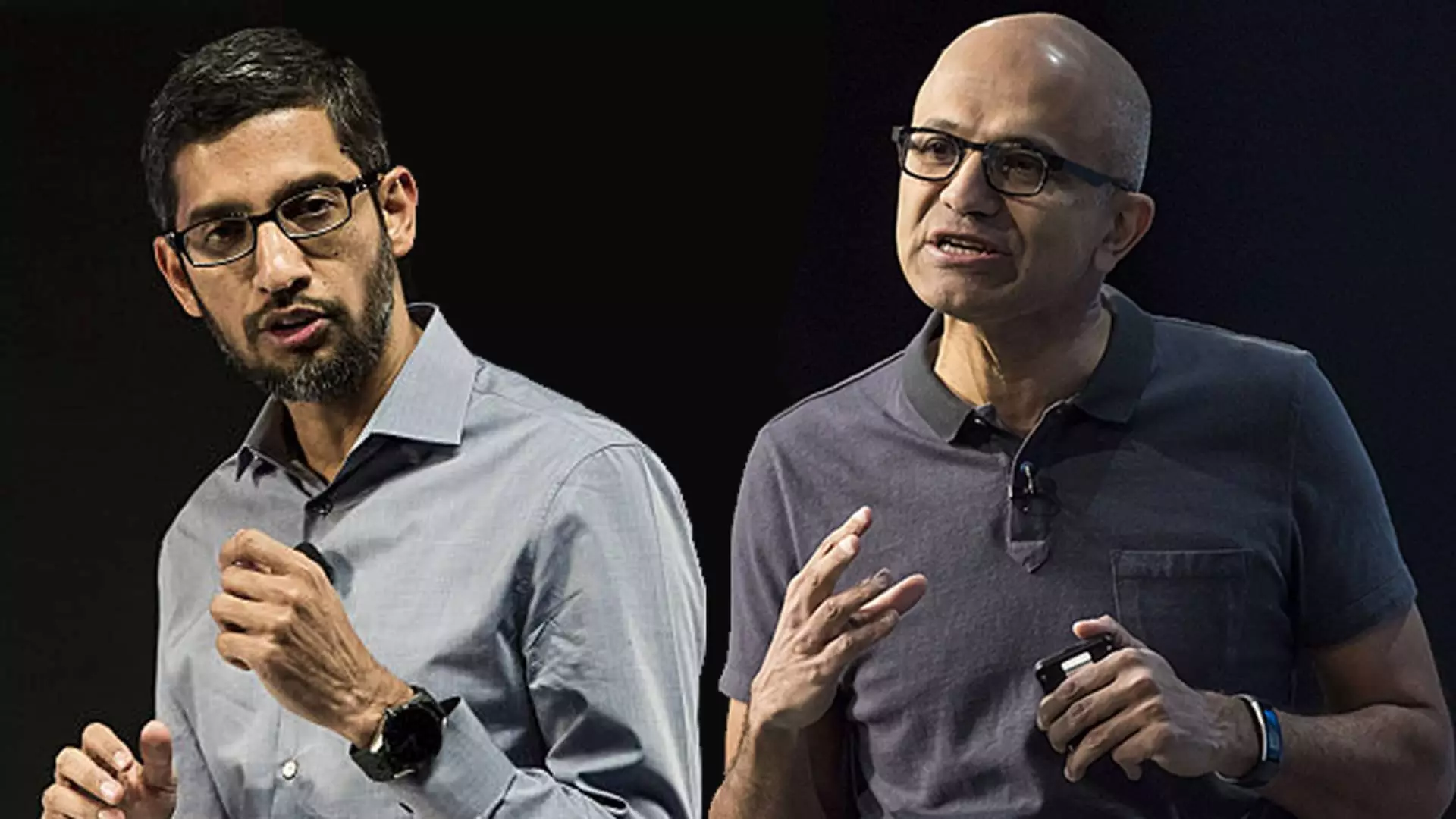The skirmish between Microsoft and Google has escalated dramatically, as Microsoft recently leveled accusations against Google for allegedly orchestrating covert campaigns intended to undermine its reputation in Europe. This public assertion marks a notable turn in the longstanding rivalry between two of the biggest tech titans in the industry. Microsoft attorney Rima Alaily’s blog post shed light on these claims, accusing Google of hiring a consulting firm to shape public perception against Microsoft using a coalition of European cloud service providers.
This controversy comes amidst rising regulatory scrutiny for Google, both in Europe and the United States, as the company grapples with antitrust challenges. The implications of such public accusations are vast, revealing not just a moment of conflict but also the underlying desperation that oftentimes accompanies fierce competition in the tech industry.
Alaily’s post was direct and alarming, stating that Google’s newly formed Open Cloud Coalition was an “astroturf” group. This tactic refers to the practice of masking the sponsors of a message or organization to make it appear as though it is a grassroots movement. According to Alaily, Google’s strategy includes disguising its financial involvement while pushing a narrative that positions Microsoft unfavorably with regulatory bodies.
The coalition purportedly aims to advocate for a fair and open cloud services market across the UK and EU. However, Microsoft’s legal perspective suggests that this initiative is a smokescreen blurred by Google’s alleged machinations. Alaily provided evidence in the form of a flyer about the coalition, indicating that even the branding of the movement was carefully engineered to mislead stakeholders.
This conflict is more than just a corporate rivalry; it’s a reflection of broader industry trends. As the digital landscape becomes increasingly dominated by cloud services, companies like Microsoft and Google are in a high-stakes battle for market share. This rivalry extends beyond just technology; it symbolizes competing philosophies about how data should be managed, accessed, and controlled.
Google, facing pressure on multiple fronts, including new antitrust cases aimed at scrutinizing its licensing practices, continues to position itself as a challenger to Microsoft’s dominance in cloud computing. Microsoft, on the other hand, offers its version of the cloud that promises significant savings for clients, emphasizing the cost advantage of using Windows Server on its platforms.
In this charged environment, accusations fly more readily as both companies vie for favorable positioning in the eyes of consumers and regulators alike.
In response to Microsoft’s allegations, Google did not shy away from defending its stance, with a spokesperson asserting concerns regarding Microsoft’s own cloud licensing practices, which they claim lead to customer lock-in. This exchange is another layer in the ongoing narrative of blame, which leaves both organizations scrambling to justify their strategies and public images.
Google’s move to file a complaint with the European Commission further illustrates this downward spiral in corporate relations. It also indicates that the method of contesting antitrust allegations is not only through regulatory channels but also via surveillance of each other’s marketing maneuvers.
As the dust settles on these accusations, one cannot help but wonder how this public feud will influence consumer choice and perceptions. Will end-users view Microsoft as a victim of corporate espionage, or will they see Google as a defender of fair business practices?
This ongoing strife signifies the increasing willingness of tech companies to engage in public battles, using regulatory bodies and public relations as weapons of choice. In an era where consumer trust is increasingly valuable, the stakes are higher than ever for both Microsoft and Google.
As this saga unfolds, IT professionals and cloud service consumers should remain cognizant not only of the products and services on offer but also of the narratives being spun around them. The future will likely see more transparency and hopefully a clarion call for genuine competition that benefits consumers rather than an expensive chess match between titans. Ultimately, while the stakes are high and the tactics are sharp, one must question whether the real winners in this battle will be the consumers who deserve fair options or merely the companies seeking to outmaneuver one another.


Leave a Reply